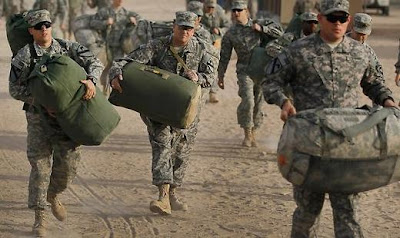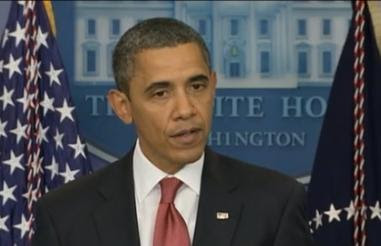 |
| Romney in talking |
(Reuters) - Mitt Romney was poised to take a big step toward the Republican U.S. presidential nomination on Tuesday by capturing New Hampshire, hoping to ride out last-minute attacks labeling him a corporate raider who enjoyed firing workers.
The former governor of neighboring Massachusetts carried a sizeable lead in polls into voting day, a sufficient cushion that should force rivals Ron Paul, Jon Huntsman, Newt Gingrich and Rick Santorum into a battle for second place.
Romney, 63, would be the first Republican who is not an incumbent president to win the first two early voting states, after his slim eight-vote victory over former Pennsylvania Senator Santorum a week ago in the Iowa caucuses.
A more resounding win would provide momentum going into South Carolina on January 21 and Florida on January 31. He leads in polls of both states and victories there could all but sew up his nomination to face Democratic President Barack Obama in the November 6 general election.
A Suffolk University/7 News tracking poll on Tuesday showed Romney with 37 percent support among New Hampshire voters, versus 18 percent for Paul, 16 percent for Huntsman, 11 percent for Santorum, 9 percent for Gingrich and 1 percent for Texas Governor Rick Perry.
Seven percent of voters were undecided in the telephone survey on Sunday and Monday, which had an error margin of 4.4 percentage points.
The same poll on Monday had Romney at 33 percent, Paul at 20 percent, Huntsman with 13 percent, Gingrich at 11, Santorum 10 and undecided at 12 percent.
"You're going to make a big statement tomorrow, let's take it to the next step, give me the boost I need, I hope," said Romney in Bedford on Monday night at his final rally of the day.
It was unclear how much damage had been done by a mess of his own making in which Romney declared "I like being able to fire people who provide services to me," in discussing the need for greater competition between health insurance companies.
Romney's opponents seized on the comment as evidence that the former venture capitalist is an out-of-touch politician and coupled it with attacks over his record at Bain Capital, a firm that bought companies and restructured them.
"Governor Romney enjoys firing people. I enjoy creating jobs," Huntsman said.
In a sharp departure for a party known as friendly to business, Republicans seeking to slow Romney sounded more like populists as they bashed his work as a venture capitalist.
Former House Speaker Gingrich, brooding over negative attacks from Romney and his backers that knocked him out of the front-runner position, has launched the toughest onslaught.
"Mitt Romney was not a capitalist during his reign at Bain. He was a predatory corporate raider," a video produced by a pro-Gingrich group said.
New Hampshire voting stations close at 7 p.m. EST (midnight GMT). About 250,000 people are expected to vote in the Republican primary while 75,000 are likely to vote to endorse Obama's re-election.
In Dixville Notch, the tiny village that traditionally votes at midnight to kick off New Hampshire first-in-the-nation primary, the nine voters were split at two votes each for Romney and Huntsman.
WHO CAN DEFEAT OBAMA?
Some voters expressed strong support for Romney.
"I saw him work as a businessman, he sees what needs to be done and gets it done," said nurse Dennis Hamson, 58, who was voting in Londonderry early on Tuesday.
But not everyone was happy about voting for him.
Eli Haykinson of Bedford said he did not want to vote for Romney but might have to because he could have the best chance to defeat Obama. "I personally don't like his huge campaign style. You don't really get to feel him at all," Haykinson said.
Romney's rivals were mostly waging a fierce battle to sway undecided voters their way and win second place. "He's a homeboy. He's been here for a whole lot of years... you serve in the neighboring state as governor, you've got a lot of advantages in terms of name recognition," Huntsman said on MSNBC.
Both libertarian U.S. Representative Paul and Huntsman, a former Utah governor who was the U.S. ambassador to China, have been on the rise in recent days.
Santorum, who nearly won Iowa by appealing to social conservatives, has not seen that message resonate in New Hampshire.
Voter Luke Breen, 52, a financial analyst voting in Londonderry, where many residents commute to Boston, said he would not support a candidate who seemed intolerant and had backed Huntsman.
"He seemed to be more worldly," he said. "I know gay people and everyone has to have gay rights under our constitution."
Santorum and Perry, along with Gingrich, are looking ahead to South Carolina to challenge Romney.
Romney leads there for now but Gingrich backers have launched $3.4 million worth of ads in South Carolina to try to slow him down in the more conservative southern state.
The former governor of neighboring Massachusetts carried a sizeable lead in polls into voting day, a sufficient cushion that should force rivals Ron Paul, Jon Huntsman, Newt Gingrich and Rick Santorum into a battle for second place.
Romney, 63, would be the first Republican who is not an incumbent president to win the first two early voting states, after his slim eight-vote victory over former Pennsylvania Senator Santorum a week ago in the Iowa caucuses.
A more resounding win would provide momentum going into South Carolina on January 21 and Florida on January 31. He leads in polls of both states and victories there could all but sew up his nomination to face Democratic President Barack Obama in the November 6 general election.
A Suffolk University/7 News tracking poll on Tuesday showed Romney with 37 percent support among New Hampshire voters, versus 18 percent for Paul, 16 percent for Huntsman, 11 percent for Santorum, 9 percent for Gingrich and 1 percent for Texas Governor Rick Perry.
Seven percent of voters were undecided in the telephone survey on Sunday and Monday, which had an error margin of 4.4 percentage points.
The same poll on Monday had Romney at 33 percent, Paul at 20 percent, Huntsman with 13 percent, Gingrich at 11, Santorum 10 and undecided at 12 percent.
"You're going to make a big statement tomorrow, let's take it to the next step, give me the boost I need, I hope," said Romney in Bedford on Monday night at his final rally of the day.
It was unclear how much damage had been done by a mess of his own making in which Romney declared "I like being able to fire people who provide services to me," in discussing the need for greater competition between health insurance companies.
Romney's opponents seized on the comment as evidence that the former venture capitalist is an out-of-touch politician and coupled it with attacks over his record at Bain Capital, a firm that bought companies and restructured them.
"Governor Romney enjoys firing people. I enjoy creating jobs," Huntsman said.
In a sharp departure for a party known as friendly to business, Republicans seeking to slow Romney sounded more like populists as they bashed his work as a venture capitalist.
Former House Speaker Gingrich, brooding over negative attacks from Romney and his backers that knocked him out of the front-runner position, has launched the toughest onslaught.
"Mitt Romney was not a capitalist during his reign at Bain. He was a predatory corporate raider," a video produced by a pro-Gingrich group said.
New Hampshire voting stations close at 7 p.m. EST (midnight GMT). About 250,000 people are expected to vote in the Republican primary while 75,000 are likely to vote to endorse Obama's re-election.
In Dixville Notch, the tiny village that traditionally votes at midnight to kick off New Hampshire first-in-the-nation primary, the nine voters were split at two votes each for Romney and Huntsman.
WHO CAN DEFEAT OBAMA?
Some voters expressed strong support for Romney.
"I saw him work as a businessman, he sees what needs to be done and gets it done," said nurse Dennis Hamson, 58, who was voting in Londonderry early on Tuesday.
But not everyone was happy about voting for him.
Eli Haykinson of Bedford said he did not want to vote for Romney but might have to because he could have the best chance to defeat Obama. "I personally don't like his huge campaign style. You don't really get to feel him at all," Haykinson said.
Romney's rivals were mostly waging a fierce battle to sway undecided voters their way and win second place. "He's a homeboy. He's been here for a whole lot of years... you serve in the neighboring state as governor, you've got a lot of advantages in terms of name recognition," Huntsman said on MSNBC.
Both libertarian U.S. Representative Paul and Huntsman, a former Utah governor who was the U.S. ambassador to China, have been on the rise in recent days.
Santorum, who nearly won Iowa by appealing to social conservatives, has not seen that message resonate in New Hampshire.
Voter Luke Breen, 52, a financial analyst voting in Londonderry, where many residents commute to Boston, said he would not support a candidate who seemed intolerant and had backed Huntsman.
"He seemed to be more worldly," he said. "I know gay people and everyone has to have gay rights under our constitution."
Santorum and Perry, along with Gingrich, are looking ahead to South Carolina to challenge Romney.
Romney leads there for now but Gingrich backers have launched $3.4 million worth of ads in South Carolina to try to slow him down in the more conservative southern state.
Read current news at http://bbc-cnn-worldnews.blogspot.com
















